Beautiful faces, fabulous hair, immaculate clothes. Laconic vocals, luxurious synths, sinuous rhythms. We are talking about Japan. Of course. To mark the release of a superb new biography, ‘Japan: A Foreign Place’, we chronicle the steady rise and sudden fall of one of the most perfect pop groups of all time
Japan were the elegant emperors of elegiac electronica. Proud as Picasso, shy as Schiele, they were not like other bands. They expressed an immortal yearning and melancholy, often via the Trojan horse of throbbing electropop. And then, just as they “made it”, they stripped everything down, broke every rule, with a boldness that startled and seduced.
Strictly speaking, they were releasing records for just four years. So in the great timeline of popular music, they were effectively only for one night and no repeat (bar Rain Tree Crow, but we’ll come to that). Yet what an impact they made. Though far from the biggest stars of their era, their legacy left a long tail which still twitches. Even those who mocked their foppish earnestness at the time now acknowledge their grace, guile and genius.
Daringly re-wiring the house of art-pop while veiled by their immaculate image, Japan made three turn-of-the-80s albums – ‘Quiet Life’, ‘Gentlemen Take Polaroids’ and ‘Tin Drum’ – which coaxed new elements of sorrow, soul and beauty from electronic instruments. If their presentation, for all its peacocking, was aloof and chilly (nobody did hauteur like David Sylvian), the music was warm, emotive, proving that synths could sigh, and could dovetail with other instruments and voices to map out previously uncharted terrain. ‘Ghosts’ is surely the least likely Top Five hit of its (or any) decade.
Japan’s influence since has been implicit rather than explicit. While most around them in the early 1980s were realising electronica could be great fun as a buzz and a beat and a shiny happy signifier of ersatz futurism, Japan used synths as a texture, a mood: mindfully eerie rather than mindlessly ecstatic. They were less interested in surface sheen than in the spaces in between. Silences, pauses and juxtapositions were in their palette, years ahead of the curve. You can perhaps discern slight traces of their pensive lineage in James Blake, alt-J, The xx, FKA twigs. They mapped out new methods of dance.
David Sylvian, of course, has all but disowned Japan’s work, embarrassed by his juvenilia. When I interviewed him in 2004, discussing some reissues, he at first feigned to have “no interest”. He relaxed later, offering a few insights into the work and the well from which it sprung. “‘Tin Drum’ moved away from the rock/pop background we’d grown up in and we diversified somewhat,” he said. “Obviously synthesisers were developing throughout the early 80s and we were creating our own imaginary, exotic, mini-orchestra. We dug into the dirt of all that, to see if it bore fruit.” As it turned out, we liked them apples.
Japan’s “career” – running rings ahead of or behind fashion – torched the trad. Formed in south London during their mid-70s schooldays, the brothers Batt (New York Dolls-fixated and hence surname-changing David and drummer Steve Jansen), bassist Mick Karn (who also played wind instruments) and keyboardist Richard Barbieri at first offered – with guitarist Rob Dean – abrasive, lippy glam-funk. Out of step both visually and sonically with punk, ‘Adolescent Sex’ and ‘Obscure Alternatives’ are now mostly dismissed by the people who made them, but regardless of genre they fire on all cylinders, overflowing with flair and bravado. Then-manager Simon Napier-Bell pitched Sylvian as “Jagger meets Bardot” and the band were – inevitably, ironically, whatever – big in Japan. “I don’t cringe as much as I laugh,” Sylvian told me in the 1980s. Their name, intended as a stopgap, stuck.
Touring the East, they assimilated new sounds. ‘Life In Tokyo’, one of Giorgio Moroder’s most underrated pulses, repositioned them as nouveau disco. At the same time, Sylvian in particular was pushing for sparseness, more restraint. One imagines the band members not so much having blazing rows as Britishly sulking in silence at each other. Sylvian’s previously highly sexualised vocals became so laconic and suave they all but out-Ferry-ed Bryan Ferry. Jansen’s intricate rhythms and Karn’s unique bobbing bass style (it’s all about that bass) broke many moulds, and Barbieri’s washes of synth were allowed to pour forth. And being exceptionally well dressed, with fabulous hair, Japan were embraced by – or lumped in with – the nascent New Romantic movement.
1980’s ‘Quiet Life’ was the next level of romance-among-robots that Roxy Music were struggling to find. Bizarrely, just as Japan found themselves and a whole lot more, their original record label (Hansa) dropped them. Virgin, liking the hair, stepped smartly in. With a shunt of publicity, Sylvian was “the world’s most beautiful man” (a reductive tag he loathes to this day) – and Japan were minor chart stars. ‘Gentlemen Take Polaroids’ was narcissistic but noir, rich with regret, and combined electronica (assisted by Ryuichi Sakamoto from Yellow Magic Orchestra) with organic instruments to achieve a sophistication of atmosphere. Guitarist Rob Dean left, feeling superfluous. Japan’s impulses, European by blood and futuristic in feel, were no longer following but leading. Many of the “bigger” New Romantic bands stole not just their look but their ideas (and diluted or defused them; less sad pierrots, more clowns).
Sylvian, now brunette and bearded, recalled this period for me with a typical self-effacing shrug. “I remember the recording being laboured,” he told me. “The label wanted an album immediately. I felt pushed: we hadn’t really defined where we were going next. It did pick up momentum, find its feet, but there was an enormous amount of tension within the band. I guess the seeds of ruin were probably sewn during that project.” Seems he couldn’t “relax and swing”. “With greater success came more pressure to tour, hence more friction,” he continued. “And I was already more drawn to melancholy pieces of music, about which the band were less than entirely enthusiastic. My heart was calling me as a writer to conceal myself less, to strip things away. With ‘Polaroids’, I was just beginning to get there. With ‘Tin Drum’, the door really opened and I saw a path ahead that resonated for me.”
As it did for others, surprisingly, which shows how open the era was to aesthetics and the quiet storm of the new. ‘Tin Drum’ was definitively non-commercial yet stayed on the charts for a year. Sylvian’s visions of China and the Far East wove around eccentric synth burbles and minimalist rhythms. ‘Ghosts’ brought existentialism and fatalism (and an arrangement of deceptive precision) to ‘Top Of The Pops’. “I don’t know why, but I convinced Virgin to release it, against their wishes, understandably,” said Sylvian. “I just felt we had something original there. Its strange popularity felt like justification, vindication. It was a very important piece of music in terms of my own development and confidence. It was personal, but it communicated too, and that was gratifying. But it was my interest, not the band’s.”
Suddenly, everyone who’d sniped at Japan got it. Their future looked golden. And so they split up. “We broke up just as ‘Tin Drum’ was released. But we were committed to a huge tour. So there we were – ‘successful’ – playing our biggest ever shows and TV, knowing between us that it was over.” Success had come too late, according to Sylvian. They’d grown up together in public and were different people to the original school friends. “In particular, Mick and I were pulling apart. The band had reached a peak, and it seemed a noble way to bow out after all that hard work. To say, ‘Well, we got there, finally’.”
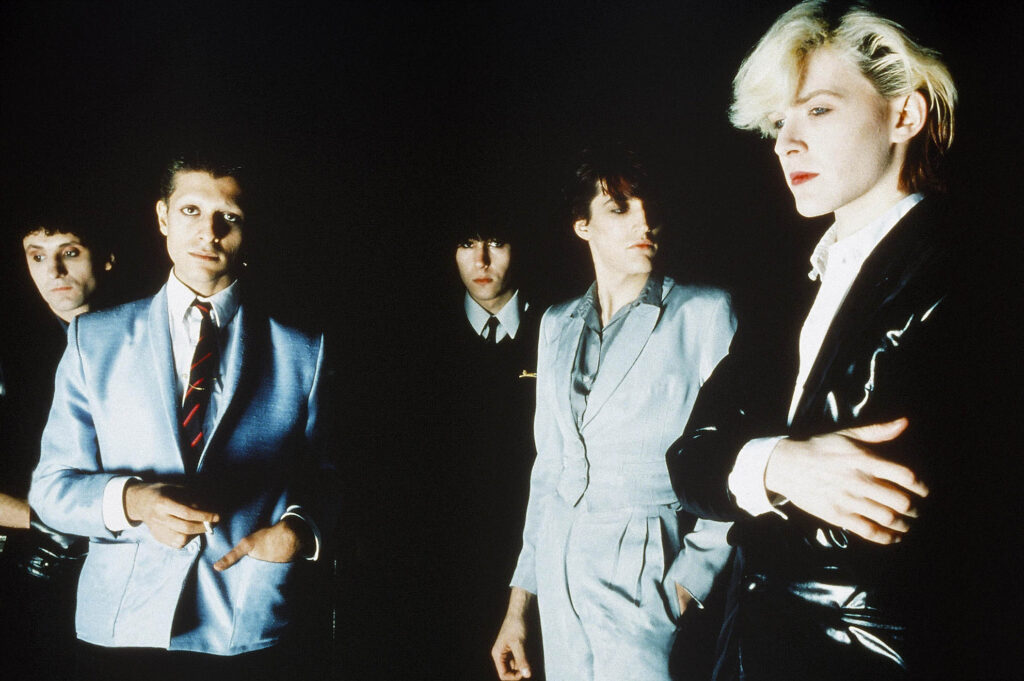
As for the New Romantic scene, he insisted, “We genuinely did not feel a part of any movement or genre. We were a very self-contained group of people socially. Always felt on the outside. Of that, or anything else. Yes, image and presentation had been important to us from the beginning, but it became something I was less and less interested in sustaining. It had been convenient, given me something to hide behind. Initially, I doubt I could have walked onto a stage without that: I was just too shy. A mask got me through it. Once I decided as a writer I wanted to express myself clearly, it had to be done away with.”
Working with Ryuichi Sakamoto on ‘Forbidden Colours’ for the film ‘Merry Christmas Mr Lawrence’, Sylvian had an epiphany on how to move forward himself, and 1984’s landmark ‘Brilliant Trees’ album (on which Jansen and Barbieri appeared) was the first in a series of fascinating and meditative solo works. “At that point I knew there was a richness about it that no longer required ‘critical acclaim’,” he said. And so he retired from the spotlight. As of December 2014, he’s all but benched his trademark luxuriant vocals, releasing ‘There’s A Light That Enters Houses With No Other House In Sight’, a sparse, mostly-instrumental collaboration with electronic musician Christian Fennesz, pianist John Tilbury and poet Franz Wright, which muses on creativity and mortality.
The Japan story had a coda or two. In 1987, Sylvian had recorded vocals for Karn, beauties such as ‘Buoy’ confirming that any feud was on ice. Ten years on from ‘Tin Drum’, Sylvian, Jansen, Barbieri and Karn reunited, recording as Rain Tree Crow. But although earlier rows over girlfriends had passed, tension and resentment ensued, with the others accusing the singer of egomania and frustrated that he wouldn’t agree to the name Japan being used. Sylvian told me he was “in analysis” at that time. “Things were prickly and volatile between us, but the actual recording was a joy. We were talking about further albums, but it fell apart. There were financial pressures. We had the biggest budget I’ve ever worked with in my life, and somehow we still managed to exhaust it.” Japan or not Japan, it’s an underrated album with, as Sylvian says, “a warmth which resonates throughout”.
One dividend of the project was the subsequent work by JBK, or Jansen Barbieri Karn. Sylvian met and married Ingrid Chavez, moved to America, found serenity (for a while). ‘There’s A Light That Enters Houses’ shows that such serenity remains inconstant. Jansen and Barbieri made an album under the name The Dolphin Brothers, then across the 80s and 90s there were records from the permutations Jansen/Barbieri and Jansen/Barbieri/Karn. The trio also played with No-Man, after which Barbieri became a long-term member of Porcupine Tree. He’s also recorded with Tim Bowness and Steve Hogarth.
In 2004, Sylvain told me he was working with Jansen again. “That’s good – and obviously he’s my brother. As far as I’m aware, there are no bad feelings between Rich or Mick and myself, but we’ve lost contact. That happens.” The resulting album, 2005’s ‘Snow Borne Sorrow’ by Nine Horses, was a collaboration between Sylvian, Jansen and Burnt Friedman which echoed the Japan mood as gorgeously as anything since the band’s heyday.
But then in 2011 came Mick Karn’s untimely death from cancer, losing us one of the most creative bass players the world has known. He left a body of work, from Dalis Car (with Peter Murphy) through sublime solo singles like ‘Sensitive’ to cameos on Kate Bush and Gary Numan albums, of breadth and imagination. His memoir, ‘Japan & Self-Existence’, emerged prior to his death and his work as a sculptor was widely praised.
“I wouldn’t dismiss pop music,” Sylvian said to me in 2004. “It’s easy to generalise and say it’s all superficial and meaningless, but I don’t believe it is. A great deal of it is just based on ego and image and style… but in a way people need that. It lifts them up for a moment.”
The music of Japan remains a double-edged caress: perversely poignant pop which sounds stronger and silkier as the years pass. What’s becoming ever more evident is that when their chance came to be king, they took it.
The Japan Albums
Adolescent Sex
(1978)
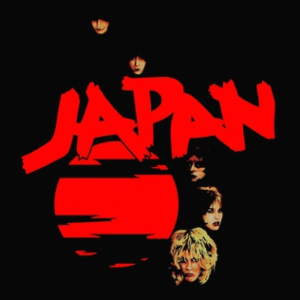
Inspired by the New York Dolls, Roxy and Bowie, early Japan weren’t subtle but were thrillingly visceral, Rob Dean’s guitar riffs lacing gritty white funk while David Sylvian drawled of lust and politics. Their louche cover of ‘Don’t Rain On My Parade’ is a gas.
Obscure Alternatives
(1978)
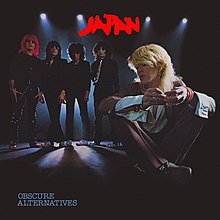
More songs about cities and sleaze, with some startlingly good cod-reggae thrown in. For all the band’s later progress, the sheer strut, crackle and presence of ‘Obscure Alternatives’ is something to be marvelled at.
Quiet Life
(1979)
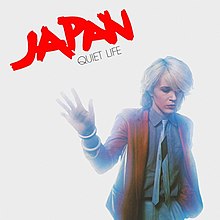
The critical tide turned as they explored both Moroder-ish avant-disco and Sylvian’s fondness for mournful elegy. They still dressed like a bonfire in a Zandra Rhodes warehouse, but they were maturing fast.
Gentlemen Take Polaroids
(1980)

They learned to relax and swing. Filtering rain-swept romanticism through layers of lush Richard Barbieri synths and that insanely brilliant rhythm section of Mick Karn and Steve Jansen, Japan were the thinking person’s pop visionaries, more Leonard Cohen than Duran Duran.
Tin Drum
(1981)
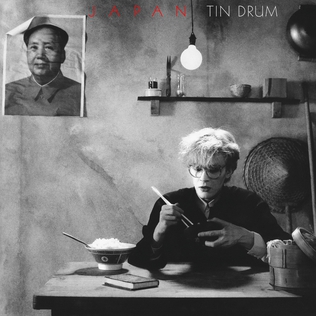
Images of the Orient were now used deftly rather than heavy-handedly. ‘Tin Drum’ was so finely nuanced, it was in places almost ether. Karn’s rubbery bass gave it all flesh, but wasn’t actually on the holy near-silences of ‘Ghosts’, a rogue existential hit.
Oil On Canvas
(1983)
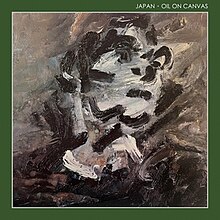
A farewell live double album featuring tracks taken from the band’s final gigs, a six-night stretch at the Hammersmith Odeon at the end of 1982. Japan were never the most exciting live act in the world, but the song selection is nothing short of superb.
Rain Tree Crow
(1991)
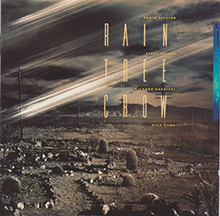
The class reunion hit hurdles, with the others blaming Sylvian’s control-freak tendencies. Yet among diverse delights, jewels like ‘Blackwater’ and ‘Every Colour You Are’ caught that lightning in a bottle again.







